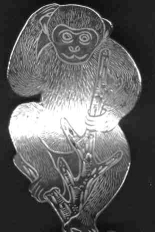chuckling to myself ...
>>> Maybe this statement does not rock everyoneâs boat, but for me it seems astounding that a decrease in low cloud cover of only a few percent could largely compensate for the impact from a doubling of CO2.
100% assbackwards ... decreasing the low cloud cover HEATS up the earth, exactly the same direction 'of effect' of increasing CO2 levels - although the cloud cover DOES have much larger effects for much smaller changes that CO2. HOWEVER THE MECHANISM OF HEATING EFFECT IS COMPLETELY DIFFERENT. Lower cloud cover REFLECTS incoming solar radiation (sunshine) ... so lower the cloud cover, earth gets hotter. A cloudless day is much warmer than a cloudy day for the same time of year. CO2 absorbs OUTGOING radiation (earthshine if you will ie. causes heating/retaining heat) but allows almost 100% OF INCOMING RADIATION (sunshine) to pass unimpeded through.
The original statements (not the authors confused understanding)
Greenhouse gases also affect heat transfer, but much less than clouds. Absolutely INCORRECT/FALSE statement.
*water vapor [humidity, not clouds]" IS a 'greenhouse gas) and has a 9 to 10 times GREATER greenhouse effect than all the other 'gases' combined. Greenhouse effect and 'heat transfer' ARE NOT synonymous terms and are NOT interchangeable.
Correct statements:
For example, âinstantaneously doublingâ CO2 concentrations, a 100% increase, only decreases radiation to space by about 1%. To increase solar heating of the Earth by a few percent, low cloud cover only needs to decrease by a few percent. (both sentences correct/TRUE)
The author got confused with increasing/decreasing and incoming versus outgoing, absorption vs reflection; due to awkward but correct wording of the original statements that he THOUGHT he understood - but obviously did not.
If you weren't corn=fused afore, perhaps you are now. *w*

Finally, brethren, whatsoever things are true, whatsoever things are honest, whatsoever things are just, whatsoever things are pure, whatsoever things are lovely, whatsoever things are of good ...
